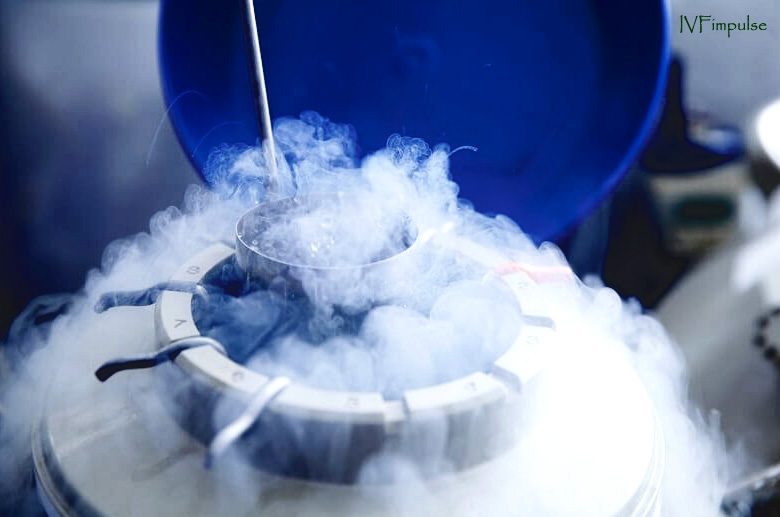In today’s fast-paced world, many individuals and couples are postponing their plans for parenthood. Whether due to career goals, health conditions, or personal reasons, the decision to delay having children is becoming more common. Fortunately, advancements in reproductive technology offer a solution: egg and sperm freezing. This process allows individuals to preserve their fertility for future use. In this article, we will explore the ins and outs of egg and sperm freezing, its benefits, procedure, costs, and who it is best suited for.
What is Egg and Sperm Freezing?
Egg and sperm freezing are medical procedures that allow individuals to store their reproductive cells for future use. This is particularly beneficial for those who wish to delay childbearing but are concerned about age-related fertility decline or health conditions that may affect their ability to conceive later in life.
- Egg Freezing (Oocyte Cryopreservation): This is the process of extracting a woman’s eggs (oocytes), freezing them, and storing them for later fertilization.
- Sperm Freezing (Semen Cryopreservation): This involves collecting and freezing a man’s sperm for future use in assisted reproductive technologies, such as IVF (In Vitro Fertilization).
Why Consider Egg and Sperm Freezing?
There are several reasons individuals might choose to freeze their eggs or sperm, including:
- Age-related Fertility Decline: Female fertility declines significantly after the age of 35. By freezing eggs at a younger age, women can preserve their younger, healthier eggs for future pregnancies. Similarly, while men produce sperm throughout their lives, sperm quality can also decline with age.
- Medical Conditions: For individuals diagnosed with cancer or other medical conditions that might impair fertility (e.g., chemotherapy, radiation therapy), freezing eggs or sperm before treatment can safeguard their chances of future parenthood.
- Career and Lifestyle Choices: Some people choose to delay starting a family due to career advancement, personal development, or a lack of a suitable partner.
- Same-Sex Couples and Transgender Individuals: Egg and sperm freezing offer options for LGBTQ+ individuals who may want to have biological children in the future.
- Genetic Conditions: People with a family history of premature menopause or other genetic disorders might opt to freeze their reproductive cells early to secure their fertility.
The Egg Freezing Process
Egg freezing is a multi-step process that typically takes a few weeks. Here’s what you can expect:
- Ovarian Stimulation: The first step is to stimulate the ovaries with hormone injections to produce multiple eggs. During this phase, a doctor will closely monitor the development of the eggs using ultrasounds and blood tests.
- Egg Retrieval: Once the eggs are ready, they are retrieved in a minor surgical procedure. The patient is placed under light sedation, and a needle is inserted through the vaginal wall to collect the eggs.
- Freezing: The eggs are then frozen using a process called vitrification, which rapidly cools the eggs to prevent the formation of ice crystals that could damage the cells.
- Storage: Frozen eggs are stored in a specialized facility until they are needed.
The Sperm Freezing Process
Sperm freezing is a simpler process compared to egg freezing and involves fewer steps:
- Sperm Collection: Sperm is collected through ejaculation. For men who are unable to ejaculate due to medical conditions, surgical sperm extraction methods can be used.
- Analysis and Freezing: After collection, the sperm sample is analyzed for motility and quality. It is then mixed with a protective solution and frozen using a similar vitrification method.
- Storage: The sperm is stored in liquid nitrogen for future use.
How Long Can Eggs and Sperm Be Stored?
Both eggs and sperm can be stored for many years without losing their viability. Studies show that frozen eggs can be stored for over a decade with little to no degradation in quality. Similarly, frozen sperm has been used successfully even after 20 years of storage.
Success Rates of Using Frozen Eggs and Sperm
The success of pregnancy using frozen eggs and sperm depends on several factors:
- Age at the Time of Freezing: Younger eggs have a higher chance of success. Women who freeze their eggs before age 35 have higher live birth rates than those who freeze their eggs later in life.
- Quality of Eggs/Sperm: The quality of the eggs and sperm at the time of freezing plays a crucial role. Healthy, high-quality eggs and sperm lead to better IVF outcomes.
- Method of Freezing: Vitrification has significantly improved the success rates of egg and sperm freezing, as it minimizes the risk of cell damage during the freezing and thawing process.
Costs of Egg and Sperm Freezing
The cost of egg and sperm freezing in India varies by location and clinic, but it is important to consider both the initial freezing costs and the long-term storage fees.
- Egg Freezing: The process typically costs between ₹1,50,000 to ₹3,00,000 per cycle. This includes medications, retrieval, and freezing. Storage fees usually range from ₹15,000 to ₹25,000 annually.
- Sperm Freezing: Sperm freezing is more affordable, with initial costs ranging from ₹10,000 to ₹20,000. Annual storage fees are around ₹5,000 to ₹10,000.
Many fertility clinics offer payment plans or financing options, and some insurance providers may cover part of the cost, especially if freezing is done for medical reasons.
Who Should Consider Freezing Their Eggs or Sperm?
Egg and sperm freezing are ideal for individuals who want to preserve their fertility for future use. You may want to consider freezing if:
- You are a woman in your late 20s or early 30s and not ready to start a family but want to preserve your fertility.
- You are undergoing medical treatments such as chemotherapy that could affect your fertility.
- You are part of a same-sex couple or are transgender and want biological children in the future.
- You have a family history of early menopause or genetic conditions that could affect your fertility.
- You are considering delaying parenthood for personal, professional, or financial reasons.
Risks and Side Effects
As with any medical procedure, there are risks associated with egg and sperm freezing. For egg freezing, the hormone injections used to stimulate egg production can cause side effects such as bloating, mood swings, and, in rare cases, ovarian hyperstimulation syndrome (OHSS).
For sperm freezing, the process itself is generally low-risk. However, men undergoing surgical sperm extraction may experience discomfort or pain after the procedure.
Conclusion: Is Egg and Sperm Freezing Right for You?
Egg and sperm freezing offers incredible opportunities for individuals to take control of their reproductive futures. Whether you’re looking to preserve fertility for medical reasons or personal choice, these procedures provide peace of mind and future options.
While it is an investment of time, money, and effort, many individuals find the benefits of preserving their fertility far outweigh the costs. It is essential to consult with a fertility specialist to evaluate your options and determine the best course of action based on your unique circumstances.
For any further advice or inquiries, feel free to email us at ivfimpulse@outlook.com.



Awesome! Clear, concise, and highly informative.
Truly a standout and informative piece of writing—thank you!
More people need to read this kind of content online.
Very good, A valuable resource for anyone exploring fertility preservation.
Highly informative and well-organized article.